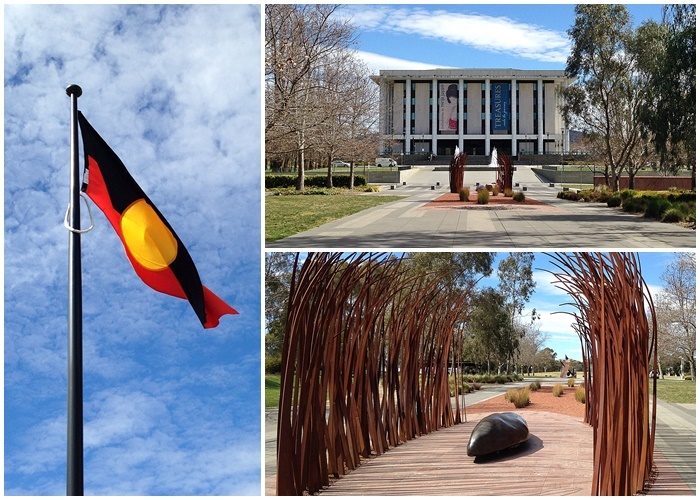“The mystical stream has always been an important part of the human experience and the source from which belief systems emerge.”
Now there’s a sentence that’s pregnant with implications begging to be explored. Since “the mystical stream” has been the wellspring of my life and work for 50 years, both the trueness and the falseness in this statement leaps out at me.
It comes from a website for “The Gathering Place,” a retreat center run by Brigidine Sisters in Australia’s capital, Canberra.
The first question is: Are they giving primacy to the “mystical stream” or to belief systems? The next sentence points toward the latter:
 “We have chosen to guide others in deepening their understanding of the mystical stream through the Scriptures, the riches of tradition, wisdom texts and the great literature of the world.”
“We have chosen to guide others in deepening their understanding of the mystical stream through the Scriptures, the riches of tradition, wisdom texts and the great literature of the world.”
You can’t have it both ways Sisters; either we step into the mystical stream every day, or we remain lost in the thickets of scriptures, traditions, wisdom texts and literature. Besides, “we have chosen” runs completely counter to mystical experiencing.
What is “the mystical stream?” If it could be defined, it wouldn’t be mystical. Even so, that word ‘mystical’ lends itself to vague, imaginary and supernatural things.
In actuality, there is nothing vague about mystical experiencing. To be sure, there are many charlatans, and just as many well-intentioned people who conflate mystical experiencing with belief systems and religious traditions. But I’m sure any serious, sensitive human being has the capacity for it.
Essentially, mystical experiencing means leaving the stream of the known and entering the infinite unknown. Of course that’s much easier said than done, since for the phenomenon to occur, all imaginary and supernatural ideas must cease.
And what are belief systems except encrusted ideas? For mystical experiencing to occur, all ideas must cease filtering sensory perception in the mind/brain.
Why did ‘the mystical stream’ give rise to belief systems and religious traditions? At best, that makes belief systems a concretization and encrustation of mystical experiencing.
Mystical experiencing is like a mountain stream, while belief systems are like dirty ice. “The Gathering Place” conflates the mystical stream with belief systems, as well as poetry and even science:
“Voices from Benedict to Bede Griffiths; from Hildegard of Bingen to Francis of Assisi; from Eckhart to Merton; from Thomas Berry to Charles Birch.
Voices from the Orient, like Chuang Tzu, Rumi, Gandhi, all have their place in the contemplative stream that leads back to the mystical source from which belief systems emerge as do the voices of our contemporary prophets, poets, scientists, environmentalists, sociologists, etc.”
OK, everything leads back to the “mystical source,” but what does that have to with belief systems, much less science? And what relevance does mystical experiencing have living in the ashes of Western civilization?
During the Middle Ages, when orthodox Catholicism (and later, the Reformation) was an overwhelmingly dominant theological framework, a mystic who strayed too far from Scripture risked his or her life. Indeed, many were put to death after accusations of heresy, apostasy and blasphemy.
The upshot is that though the mystical stream may have inspired belief systems, belief systems impede, if not preclude mystical experiencing.
And mystical experiencing is completely distinct from science, which is a rational system of testable knowledge. Any mystic worth his or her salt does not want to start a religion, or add to knowledge, whether rational or irrational.
Belief systems are inherently of the past, whereas mystical experiencing is intrinsically of the present. Belief systems don’t lead back to the mystical stream, but away from it. To truly commune with the numinous—the immanent sacredness of life and the universe—all beliefs and prior experience have to be completely set aside.
So do beliefs and traditions have a place in mystical experiencing at all? If beliefs and traditions become a source of questioning and insight, they can be useful to a point. But they certainly aren’t necessary.
So what happens during states of mystical experiencing? First the observer ends in self-questioning and passive awareness. Unwilled attention grows out of passive watchfulness, and one follows every thought and emotion as they arise to the end.
The movement of thought naturally ceases in inclusive, undirected attention, and psychological time ends. Then there is communion with death, creation and God…as immanence, not as separate “Creator.”
Martin LeFevre

